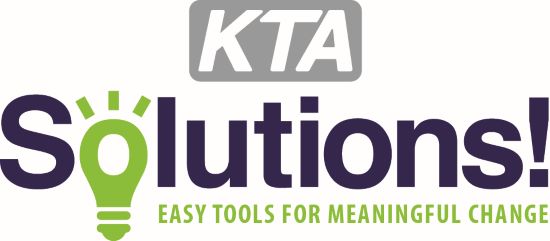INTENTIONAL CONVERSATIONS©
The Intentional Conversations Impact survey and process
The Intentional Conversations Impact survey and process provides a practical and easy to use method for turning normal everyday conversations into career enhancing and life transforming opportunities.
Benefit to employees and managers
• New Managers who want to establish collaborative and productive relationship with those that report to them
• Veteran managers who want to develop or mentor employees
• New employees who want to establish healthy relationships with their supervisors and co-workers
• Seasoned employees who want to enhance their opportunities for promotion
• Anyone who wants to learn how to use conversation to enrich their life and that of others
Ken has spent more than thirty years as an executive coach and a speaker. His four previous books have sold thousands of copies in 7 languages around the world.
• Intentional Conversations highlights known historical events and reveals the behind-the-scenes singular conversation that led to those events.
• Intentional Conversations uses historical and present-day conversations to teach readers how to use the SECRET process to enhance their success at work and in life.

Posture
Conversation is based upon an assumed posture. That posture may be a One up, One to One, or One Down.
- Taking a One Up Conversation Posture – a person assumes a position of authority by what they say and how they say it.
- Taking a One to One Conversation Posture – a person assumes a position of shared authority with another by what and how they say it.
- Taking a One Down Conversation Posture – a person yields authority to another by what and how they say it.
Influence
Each person influences what happens in a conversation. Influence may occur in a directive, collaborative or supportive way.
- Exerting a Directive Influence – a person determines to direct, command or manage behavior of another.
- Exerting a Collaborative Influence – a person determines to share with, join in with or unite with another person.
- Exerting a Supportive Influence – a person determines to assist, esteem, or lift up another person.
Response
Every conversation generates some response. The response may be to do, think about or change something.
- In a Do Response – a person is motivated to take action.
- In a Think Response – a person stimulates another to process ideas.
- In a Change Response – a person determines to alter behavior in themselves or another.
Transform Your Career
Before
Suspend Status
– What role is status likely to play in the conversation?
– What is your default status with the person(s)?
– What steps can you take to help suspend status?
Empower Each Person
– How can you affirm the role this person plays in the mission of your organization?
– How does this person like to be recognized?
– What can you say to show you have confidence in their ability?
Cultivate Connection
– What steps can you take to positively impact the conversation early on?
– How can you cultivate a ‘win win’ atmosphere?
– What words, ‘trigger statements’ or issues do you need to avoid?
During
Reframe Reaction
– How do I need to revise my response in order to avoid shutting down the conversation?
– What is a good way to reframe their response to reinforce the positive?
– What is a non-confrontational clarifying question I can ask to help me understand better?
Enforce Engagement
– Am I presenting my ideas in a clear, concise, and well-reasoned way?
– Am I sharing the key points I want to share?
– How can I get more engagement from him/her around the ideas we are discussing?
After
Suspend Status
– What role is status likely to play in the conversation?
– What is your default status with the person(s)?
– What steps can you take to help suspend status?
Empower Each Person
– How can you affirm the role this person plays in the mission of your organization?
– How does this person like to be recognized?
– What can you say to show you have confidence in their ability?
Cultivate Connection
– What steps can you take to positively impact the conversation early on?
– How can you cultivate a ‘win win’ atmosphere?
– What words, ‘trigger statements’ or issues do you need to avoid?
